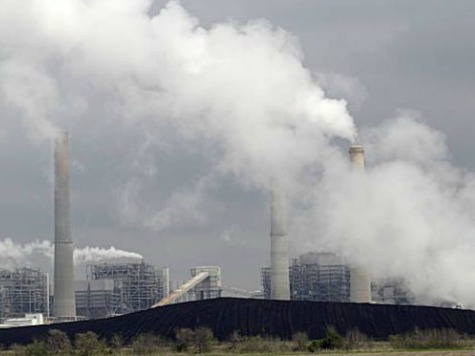
California environmentalists were giddy after the market for pollution credits traded up in price to a new high on record volume. But rather than a sign of greater enthusiasm to fight CO2, the California legislature quietly passed in 2012 a law that allows private utilities to pay the state for credits at any price, slap on a very nice profit, and then make their public customers foot the bill.
Following the announcement that California’s Air Resources Board auction on August 16th was a blow out sale of 9.56 million CO2 permits at $11.10 per unit, Bloomberg reported that California pollution credits for 2016 traded up on a record volume of 1.83 million units to $12.50 a unit. The previous high was 960,000 units traded on May 21st.
Utilities and other businesses paid a combined $331.8 million for carbon credits in California’s latest cap-and-trade auction according to the State’s website. Companies also paid $11.50 a ton for carbon credits that can be used this year and $11.34 for 2017 units, according to the California Air Resources Board. All 22.5 million available credits sold out. Bidders also paid $11.34 a ton for 6 million carbon credits for use in 2017.
Environmentalists said the results of the latest quarterly auction were positive in light of recent controversy surrounding the market. “There is now conviction that this program will be here for a while,” Lenny Hochschild, managing director at the White Plains, New York-based environmental broker Evolution Markets, told Bloomberg. He added that each credit allows the release of a metric ton of carbon into the atmosphere.
But a report by the California Public Utilities Commission (PUC) titled “Public Utilities Code Section 748 to the Governor and Legislature on Actions to Limit Utility Cost and Rate Increases” acknowledges that the PUC, under the sub-heading of “Cap and Trade Customer Impact,” has interpreted omnibus California Senate Bill No. 1018 passed on June 27, 2012 to allow utilities to buy carbon credits, tack on a handsome mark-up for profit, and then charge their customers the full cost plus profit.
“Cap and Trade Market” is the centerpiece of AB 32, California’s global-warming law passed in 2006. Under the law, the state supposedly placed a ceiling on the total amount of carbon that can be emitted each year by 400 big manufacturers, food processors and others. Companies already in California were initially grandfathered most of the credits they need for free, but must over time reduce emissions or buy additional credits.
Oil refiners and some state legislators want California to postpone the scheduled January 1, 2015 expansion of the cap and trade charges for the first time onto emissions from motor vehicles. The Sacramento Bee reported that the non-partisan Legislative Analyst’s Office calculated that the cap and trade surtax will tack on another 13 to 20 cents in cost for every a gallon of gasoline purchased in the state.
California’s cap and trade sales were touted as tool to reduce global warming. Science 2006 and the decline in global temperatures, the legislation is now touted as preventing global climate change. But what is really warming up from this scheme is more profit for utilities and more tax collection for the state.

COMMENTS
Please let us know if you're having issues with commenting.